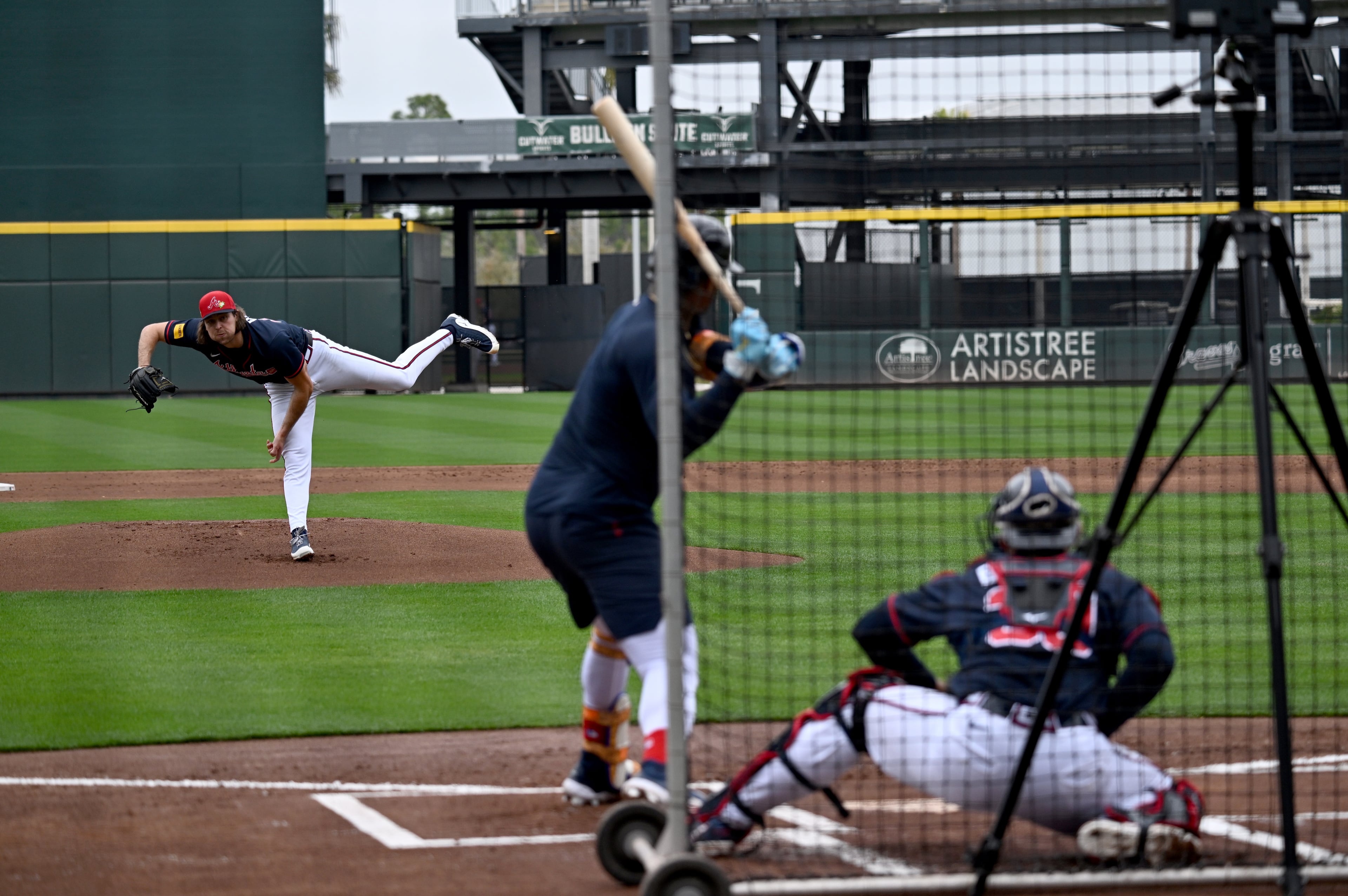Dallas Keuchel provides all-around boost for Braves pitching
Dallas Keuchel will provide more than just a boost to the Braves’ rotation. He’ll also aid their bullpen, which went through its share of turbulence over the first third of the year.
That's why the Braves made the $13 million commitment. Keuchel offered the total help package: He'd eat innings and provide stability in the rotation. He'd spare the bullpen additional frames, hopefully avoiding last year's fate when arms were completely taxed by October. His clubhouse presence is applauded, so they knew he wouldn't disrupt what's been outstanding team chemistry.
» More: Keuchel start pushed to Monday in Single-A Rome
“Another guy you can rely on every five days to give you a chance to win,” first baseman Freddie Freeman said. “Three-and-a-half ERA in the American League last couple years, I have a feeling that’s going to go down in the National League where you face the pitcher all the time. It’s a big boost for our club.”
Entering Sunday, the Braves were tied for the fifth-fewest outings (nine) with a starter exceeding 100 pitches. They had 14 starts in which a starter threw fewer than 80 pitches, 11th most in the bigs. They average 86 pitches per start, the second-lowest total in the National League behind only San Diego (84).
What it means: The Braves need their starters to go longer. There are a few reasons for that 86 number: Manager Brian Snitker is more conservative with his starters, for one, so they won’t be pushed. Julio Teheran, who’s earned a 3.03 ERA, doesn’t pitch deep into games (which is fine, considering how effective he’s been in five or six frames).
Max Fried and Mike Soroka have gone deep into games, but it’d be foolish to ride them the entire year. Fried, 25, and Soroka, 21, are getting their first taste of being starters a whole season in the majors. Not to mention the Braves want them fresh for a potential postseason series.
Then there's Kevin Gausman, who's collapsed after his 10-start, 2.87-ERA showing from last season. His ERA sits over 6.00 after allowing eight and six earned runs in his last two starts. Mike Foltynewicz hasn't been the same since returning from the injured list, but he's had enough flashes to suggest he can be an asset.
Rather than cross their fingers for Gausman — who’s the likely rotation casualty when Keuchel is ready — or rush one of their prized young arms, the team decided to dip into the market.
“There’s a number of ways we can go,” Snitker said. “Obviously when he’s ready, he’s going to get slotted in. We’ll deal with that when we get there because anything can happen from now until then. You have to have a plan because if you don’t you’ll get stuck. But in this game, you plan for something and then things have a way of working themselves out.”
Keuchel is coming off a 200-inning season and has a clean health history. Not to mention he won’t pitch until mid-to-late June, which might not be entirely a negative. He should be fresh for the stretch run.
Keuchel fortifies the Braves’ starting pitching in the regular season and gives them a high-end, experienced lefty if they make the playoffs. The Braves will pursue relief help at the deadline (and maybe even another rotation addition), but life is undoubtedly easier with Keuchel in hand.
“When our starters are pitching the majority of the innings, we’re going to be doing OK,” Snitker said. “So anytime you can add a guy like that, it means he takes the ball and he gives you innings. So that does nothing but help your bullpen in the long run.”
And he didn’t cost them prospects. He isn’t a risk of becoming a dead-weight contract. All it required was loosening the purse strings.



